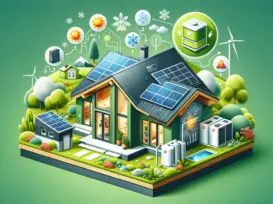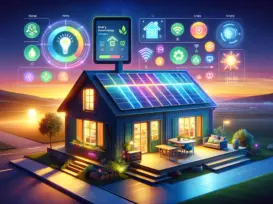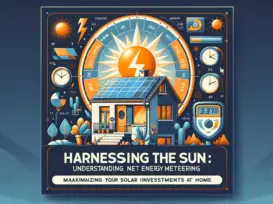Grus Home Energy - Sustainable Living
Sustainable Living: A Guide to Reducing Your Environmental Footprint
Sustainable living is a lifestyle choice that focuses on reducing one’s impact on the environment by making conscious decisions to minimize waste and conserve resources. This includes practices such as recycling, using alternative energy sources, reducing water consumption, and supporting local and organic products. By adopting sustainable living practices, individuals can help protect the planet for future generations and promote a more eco-friendly way of life.
One of the key principles of sustainable living is reducing waste. This can be accomplished by practicing the three R’s: reduce, reuse, and recycle. By reducing the amount of waste produced, individuals can minimize their impact on landfills and reduce the need for new resources. Reusing items such as clothing, containers, and furniture can also help extend the lifespan of products and reduce overall consumption. Recycling materials such as paper, plastic, glass, and metal helps divert waste from landfills and conserve valuable resources.
Another important aspect of sustainable living is conserving energy. This can be achieved by using energy-efficient appliances, LED light bulbs, and programmable thermostats. Additionally, individuals can reduce their energy consumption by unplugging electronics when not in use, turning off lights when leaving a room, and using natural lighting whenever possible. Investing in renewable energy sources such as solar panels or wind turbines can also help reduce dependence on fossil fuels and lower greenhouse gas emissions.
Water conservation is also a critical component of sustainable living. By practicing simple habits such as taking shorter showers, fixing leaks, and using water-saving fixtures, individuals can reduce their water usage and help protect this valuable resource. Collecting rainwater for gardening or installing a greywater system can further reduce water consumption and promote sustainability. Supporting local farmers and choosing organic products can also help reduce the environmental impact of food production and support sustainable agriculture practices.
In addition to individual actions, communities and businesses can also play a role in promoting sustainable living. Local governments can implement policies to encourage recycling, reduce waste, and support renewable energy projects. Businesses can adopt sustainable practices such as reducing packaging, supporting fair trade products, and minimizing water usage. By working together, individuals, communities, and businesses can create a more sustainable future for all.
Overall, sustainable living is a holistic approach to reducing one’s environmental footprint and promoting a healthier planet. By making conscious choices to minimize waste, conserve resources, and support eco-friendly practices, individuals can contribute to a more sustainable way of life. Whether through small changes in daily habits or larger initiatives in the community, sustainable living is a powerful tool for protecting the environment and preserving our world for future generations.
©2025 All Rights Reserved. Grus IoT Co.,Ltd.





